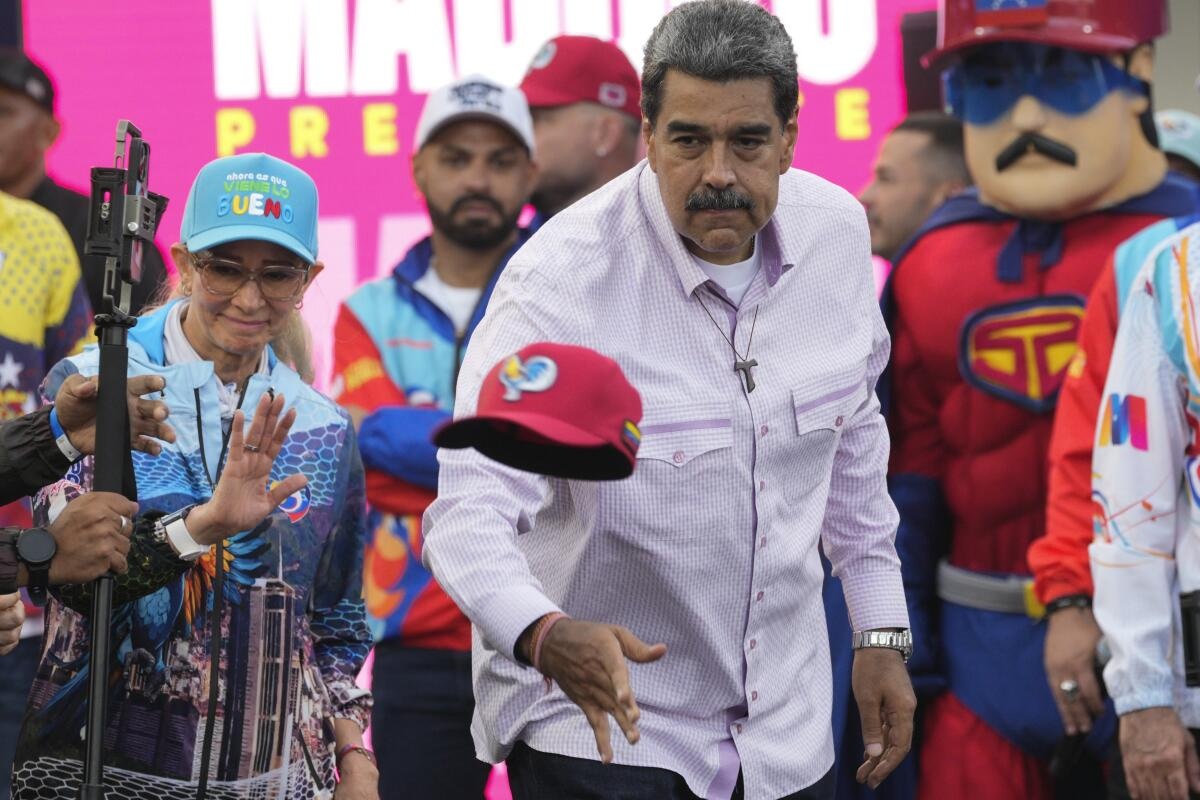The U.S. Treasury Department on Tuesday, June 24, 2025, imposed sweeping sanctions on Giovanni Vicente Mosquera Serrano, the alleged leader of Tren de Aragua (TDA), a powerful Venezuelan criminal organization that former President Donald Trump’s administration has cited as a key justification for its intensified immigration crackdown.
In a statement released Tuesday, the Treasury’s Office of Foreign Assets Control (OFAC) announced that Mosquera Serrano was sanctioned.
It also disclosed he was indicted by the Department of Justice on charges of drug trafficking and terrorism.
The FBI has added him to its Ten Most Wanted list, offering a $3 million reward for information leading to his arrest or conviction.
“Under Mosquera Serrano’s leadership, Tren de Aragua has terrorized our communities and facilitated the flow of illicit narcotics into our country,” said Treasury Secretary Scott Bessent.
“These sanctions are a message to transnational criminal organizations: you cannot hide behind borders.”
The announcement marks the latest in a string of measures by the Trump administration to tie foreign criminal networks to national security threats.
It is an approach that has stirred controversy both domestically and abroad.
A Terror Label with Political Implications
Earlier this year, the Trump administration took the unusual step of labeling Tren de Aragua and several other Latin American gangs as “foreign terrorist organizations.”
This is supposedly a designation traditionally reserved for groups with explicitly political or ideological motives, such as al-Qaeda or ISIS.
Critics argue that applying the terrorism label to street gangs expands presidential powers in ways that undermine democratic accountability and due process protections.
But the Trump White House has maintained that the scope and brutality of groups like TDA meet the criteria.
That designation was followed by an even more contentious move: invoking the Alien Enemies Act of 1798, a wartime law rarely used in modern history.
Claiming that Tren de Aragua’s operations inside the U.S. constituted a foreign “invasion,” Trump used the law as the legal foundation for expedited deportations of suspected gang members.
Over 200 individuals, many of whom had no criminal records, were deported under this measure and sent to a maximum-security prison in El Salvador.
Critics, including immigrant rights advocates and legal scholars, condemned the deportations as a violation of due process.
Attorneys representing some of the deportees claim their clients were targeted based on racial profiling.
They claim their clients were also targeted based on tattoos, or clothing choices, rather than verified evidence of gang affiliation.
The Department of Homeland Security has rejected these claims, insisting the deportations were legally sound and intelligence driven.
Doubt Over Ties to Venezuela’s Government
Adding another layer of complexity, the Trump administration has alleged that Tren de Aragua is operating in coordination with the government of Venezuelan President Nicolás Maduro.
That accusation has helped justify the classification of the gang as a national security threat.
However, an April memo from the Office of the Director of National Intelligence (ODNI), leaked to the press, appears to undercut that narrative.
“While Venezuela’s permissive environment enables TDA to operate,” the memo reads, “the Maduro regime probably does not have a policy of cooperating with TDA and is not directing TDA movement to and operations in the United States.”
The memo further suggests that Caracas views the gang as a domestic threat, not an asset.
This divergence between intelligence findings and public policy statements raises questions.
These are questions about the degree to which the administration is shaping security narratives for political ends.
This is particularly in an election cycle where immigration remains a hot-button issue.
A Regional Crisis With Global Reach
Tren de Aragua has rapidly expanded its influence across Latin America, engaging in human trafficking, drug smuggling, and even political assassinations.
In July, the U.S. and Colombia jointly offered multimillion-dollar rewards for the capture of Mosquera Serrano and two other top figures within the gang.
Despite its fearsome reputation in the region, experts have cautioned against exaggerating the gang’s presence in the United States.
“The gang’s U.S. footprint is minimal compared to local criminal groups,” said one Latin America analyst.
“What we’re seeing is a securitization of migration, not necessarily a response to a domestic criminal crisis.”
Still, as the Trump administration continues to lean on national security tools to address what it portrays as an international criminal threat, the boundary between law enforcement and immigration policy appears increasingly blurred.
For now, the spotlight remains on Mosquera Serrano, still at large, and on a growing debate over how far governments should go in the name of security.







